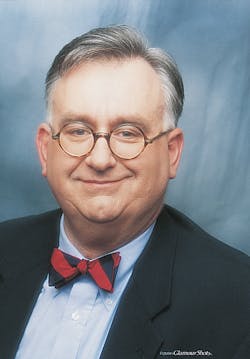In my April column, I shared some thoughts about how the newly promoted chief officer should think, act and perform. It is my fervent hope that you chose to remember the part about caring for your people; otherwise, this month’s column will have little or no value.
As a newly promoted chief officer, you have been moved into a critical new role. Bear in mind that the promotion might have come as a result of a civil service test or the annual election in your volunteer fire department. It matters not because the results will be the same. Not only are you now responsible for the safety and well-being of your people, you are answerable for their training. If your people cannot perform, I assure you that you will be the first person to whom the department leadership will turn looking for an explanation.
Learning comes first
What is the first thing people who wish to teach must do? Learn. They must learn about many things, not just the topics involved in firefighting, EMS, hazmat or whatever may be the case. They must first (and most importantly) learn about themselves. Then they must then learn about other people.
They must work to learn as much about the how and why of people’s actions as they possibly can. Why do I suggest these things? I offer this advice because of my hard-won experience as a fire officer in both career and volunteer assignments. The circumstances of the situation dictated the responsibilities which I was required to perform.
Some of my greatest problems as an officer came about as a result of my own mistakes, which were made worse by a poor reading of the actions and attitudes of the people around me. Many times, what I perceived as acceptance was a mere tolerance of my actions. That was a very hard lesson to learn. People will put up with a great deal when they perceive that a person’s position requires it. But the results will not be very good. This is a terrible thing to find out; however, when you discover it, you have taken a true first step on the way to success.
Unless you learn and grow as an individual, you will never do well as a supervisor or fireground commander. You must want to help others if you are to be an effective leader. Further, you must like to help people and want to see them succeed. I have learned the hard way that an inward focus really turns people off. Turned-off people are not happy people. And unhappy people do not enjoy their work; therefore, they do a bad job.
What are some of the traits you must assess within yourself? A short list would include:
• Confidence in your abilities
• A willingness to learn
• Strength of character
• Enthusiasm for the task at hand
• The ability to speak, write and listen effectively
• Knowledge of the fire protection field
• A vision for yourself and your place in the world
The first on the list is critical. If you do not think you can do something, people will sense this ambivalence and you will fail. How would you like to follow an officer into battle who blows his whistle and yells, “Over the top, I guess.” Leading by example works best.
You must always remain in search of knowledge. It is important to read books, attend seminars, conduct after-action critiques and look for new facts wherever the opportunity presents itself. Your unwillingness to learn will manifest itself in a team that does not value knowledge. The person who shuns knowledge also leads by example – bad example. Be proactive in your quest for knowledge.
Your entire reputation as a fire officer will rest on whether people sense in you a person with strong values. You must also display a dedication to those principles which guide your daily existence. Let me share with you those things which guided my personal and professional life for the past few decades.
• Faith in God
• Love of family
• Loyalty to my people
• Honesty
• Determination to get a bit better every day
• A sense of self-discipline, for how can you ask people to do something you cannot display yourself?
If you can live by such things, your people will come to understand who you are. When they know that their trust and faith in you will always be repaid, they will literally go over the top with you. One of my cardinal rules is to never ask a person to do something I would not do myself or have not done in the past. For me, it shows a strength of character that lies at the root of who and what I am as a fire service leader.
Above all, be enthusiastic about what you do. Some of my favorite role models in the fire service could have given lessons to Tom Sawyer on how to get people to white-wash a picket fence. Just being in the presence of people like this made you want to do what they were doing. Oddly enough, these were also individuals who enjoyed being around people, and that showed too. It is tough to get psyched up over a dirty job. But if you can, so will your people. Enthusiasm is contagious, so catch some.
As to my skills as a communicator, well, I try. Many who have known me for years feel that I am an effective communicator, within all of the disciplines. But don’t forget that this also means being a good listener. Chances are good that if you cannot listen and miss something, you will overlook the proper response. Be warned: If you aren’t listening enough, then you may not be talking enough. These two problems go hand in hand.
Once you come to know yourself, you have to learn about your job. You must study fire protection, emergency medicine, hazardous materials response or burn prevention, OR whatever your discipline might be. How can you tell people what to do (or prevent them from doing the wrong thing) if you do not know what to do yourself? As one who has been in the business for many years, I assure you that you really do learn something new every day, but only if you are sharp enough to keep your eyes open. It took me a long time to learn this.
Lastly, develop a vision for yourself and your place in the world. For some people, it may be very expansive. These are the people who are driven to ever-higher levels of achievement. For others, it is possible that the urge to scale the heights is not as great as yours. But these people can be just as successful in their own right. And they may well be a lot happier.
The key is to define your place in the world, and then strive to achieve it. On those days when I was upset with my job, I would pause and ponder: How many people are out there who would like to be a battalion chief in a large, metropolitan fire department? I suggested that I needed to wake up and enjoy God’s grace.
Let me assure you that it is important to have goals and aspirations. But you must reconcile these with the reality of your life and your world. For you see, it is from that distillation of what you want and what you are capable of doing that a real vision of what you may actually do is created. Remember, how can you reach the moon if you don’t occasionally shoot for the stars?
It is my hope that this column has given you a bit of insight into what you need to know to succeed as a fire officer. For if you do not know, you will never go. Or if you do go without the knowledge, people could die.
Above all, remember that you are a servant of the people placed in your care. If you hold them in low esteem and treat them like dirt, it will show. Likewise, a sincere concern demonstrated in a consistent manner will be rewarded. Remember the Golden Rule and you will do well as an officer. Ignore it at your own peril.
Dr. Carter shares his perspectives in his “The View From my Front Porch” blog at:
http://www.firehouse.com/blogs/the-view-from-my-front-porch.
HARRY R. CARTER, Ph.D., a Firehouse® contributing editor, is a fire protection consultant based in Adelphia, NJ. He is chairman of the Board of Commissioners in Howell Township Fire District 2 and retired from the Newark Fire Department as a battalion commander. Dr. Carter has been a member of the Adelphia Fire Company since 1971, serving as chief in 1991. He is a life member and past president of the International Society of Fire Service Instructors and life member of the National Fire Protection Association. He is president of the United States of America Branch of the Institution of Fire Engineers (IFE) of Great Britain. Dr. Carter holds a Ph.D. in organization and management from Capella University in Minneapolis, MN.
About the Author

Dr. Harry Carter
HARRY R. CARTER, Ph.D., who is a Firehouse contributing editor, is a fire protection consultant based in Adelphia, NJ. He is chairman of the Board of Commissioners in Howell Township Fire District 2 and retired from the Newark, NJ, Fire Department as a battalion commander. Carter has been a member of the Adelphia Fire Company since 1971, serving as chief in 1991. He is a life member and past president of the International Society of Fire Service Instructors and life member of the NFPA. He is the immediate past president of the U.S. branch of the Institution of Fire Engineers (IFE) of Great Britain. Carter holds a Ph.D. in organization and management from Capella University in Minneapolis, MN.
Connect with Harry:
Email: [email protected]
